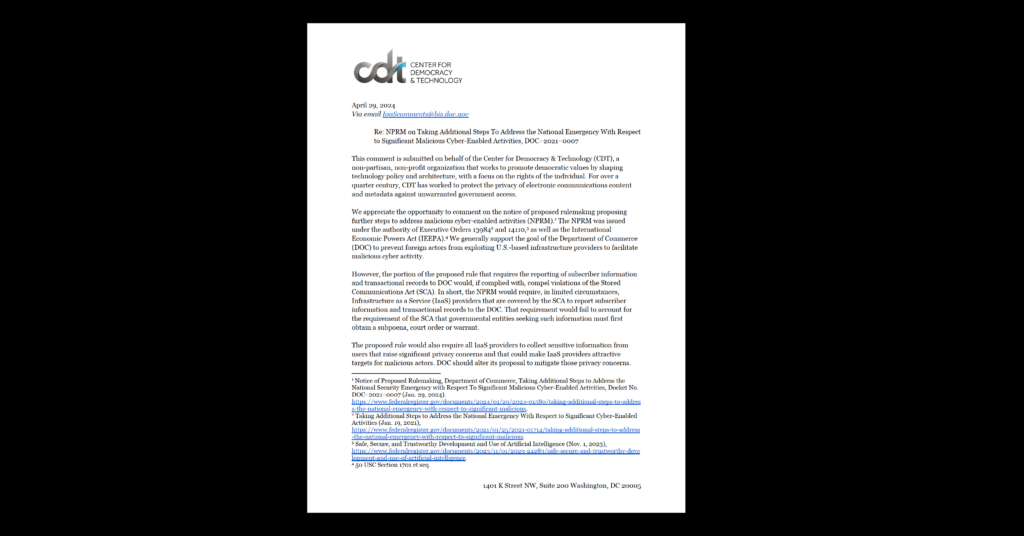What Went Right in the Fight Against ‘Nuisance Adware’
It’s significant that of all the major desktop advertising players (the others being Claria, WhenU and DirectRevenue), Zango was the last one standing.
With those words, Ken Smith the CEO of adware company Zango/180solutions signaled the end of an industry that consumers never wanted and the end of a company that CDT found to be engaging in unfair and deceptive practices, a claim substantiated by the company’s record $3 million settlement with the FTC 10 months later. At the CDT Gala last month, FTC Chairman Leibowitz foreshadowed this development suggesting that this "iniquitous business model has been mostly eradicated." The adware companies always tried to take advantage of the worst practices of mainstream players on the Internet to create a new "gray area" to do business in where they could install software without proper notice or consent; pop up advertisements at users while they were on the Web; and keep users from being able to uninstall their software. Those of us fighting this business model realized that these practices may never be completely eliminated. Instead, our goal was to ensure that companies had to chose between following good practices or becoming completely illegitimate. Remember that in 2005, Zango was the #7 fastest growing company in America according to Inc Magazine growing at over 1000% for two years. Companies that were engaging in these practices that receiving venture capital from legitimate investors and advertising from mainstream companies were the immediate threat to the Internet. There are many reasons for this victory, in particular:
–The efforts of law enforcement, especially the FTC and the state attorneys general (see CDT’s Spyware Enforcement Report);
–technology solutions, such as anti-spyware software including the members of the Anti-Spyware Coalition;
–efforts to hold advertisers responsible for where they advertised, by CDT, Chairman Leibowitz and the FTC and the New York Attorney General; and
–industry best practices, mainly defined by the Anti-Spyware Coalition, Stopbadware and TRUSTe’s Trusted Download Program.
Of course, this victory for Internet users is only the beginning. Now we must focus those players who have no intention of ever becoming legitimate as well as questionable mainstream practices that allowed nuisance and harmful adware to grow in their shadow. On May 19th, the Anti-Spyware Coalition will address these issues in a Public Workshop in Washington, DC focussed on "The Chain of Trust" – the links that allow Internet users to trust their online interactions – and to keep it strong. There will be keynotes from Melissa Hathaway (invited) from the White House’s National Security Council, Jeff Fox from Consumer Reports and Brian Krebs author of the Washington Post’s Security Fix Blog. Hope to see you there.


